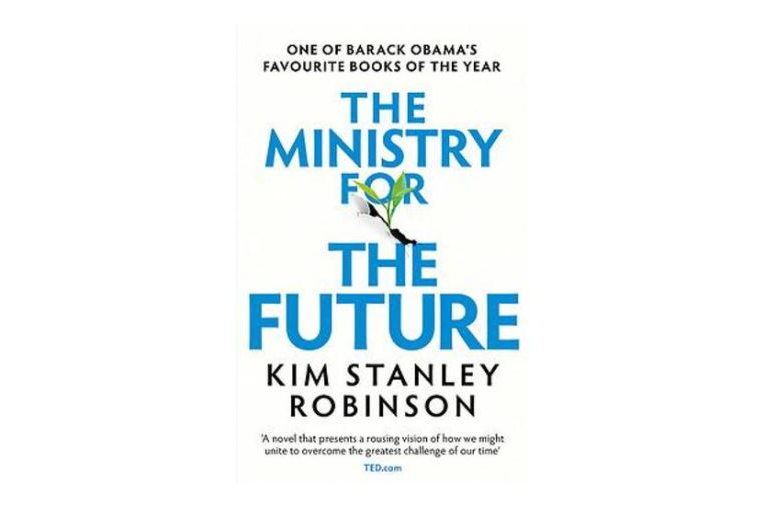(Conversation recorded on March 14th, 2022)
Show Summary
On this episode, Nate is joined by climate science fiction author Kim Stanley Robinson to discuss how he contributes to the discussion of climate and pro-social changemaking through writing. There have been many calls to improve the communication of scientists to the general public in hopes it will help people understand the severity of the various global threats we face. A key component to such communication comes from art and literature. Even further, the humanities help us think about the type of future and culture we want to have given the information that science brings us. How can we incorporate fiction into our set of tools to bring more people into awareness of the pressing systemic dynamics underpinning global events?
About Kim Stanley Robinson:
Kim Stanley Robinson is an American science fiction writer. He is the author of over twenty books, including the internationally bestselling Mars trilogy, and more recently Red Moon, New York 2140, and The Ministry for the Future. He was part of the U.S. National Science Foundation’s Antarctic Artists and Writers’ Program in 1995 and 2016, and a featured speaker at COP-26 in Glasgow, as a guest of the UK government and the UN. His work has been translated into 28 languages, and won awards including the Hugo, Nebula, and World Fantasy awards. In 2016 asteroid 72432 was named “Kimrobinson.”
To watch this video episode on Youtube → https://youtu.be/Xc53KPv7flk
Show Notes & Links to Learn More:
00:05 – Kim Stanley Robinson Info + Works
00:46 – Ministry For The Future
06:09 – New York 2140
06:59 – 40 Signs of Rain
07:15 – National Science Foundation
07:50 – An Inconvenient Truth – Al Gore
13:30 – Rich getting richer since the 1980s and exponentially during the pandemic
13:35 – Quantitative Easing value was captured by top 2% of wealthiest people
13:52 – Carbon Footprint of Quantitative Easing
14:09 – Externalities
14:17 – Discount Rate
14:55 – Carbon Coin
16:14 – Keynesian
19:35 – Swiss Federal Institute of Technology DNA test in a river to determine the living species
26:04 – Actor Network Theory
26:35 – Anglo-Saxon Literature
26:58 – Eyewitness Account in Fiction
28:04 – Erica Thompson + TGS Episode
30:15 – Dystopia reinforces resignation to catastrophe
31:02 – Nineteen Eighty-Four
34:26 – Wet Bulb Temperature
36:01 – False conception that humans are infinitely adaptable
37:41 – Increase in heat waves and mortality
41:25 – Aurora
44:34 – Half-Earth EO Wilson
45:04 – Ben Franklin, William James
45:31 – 30 by 30
48:11 – Regenerative agriculture
48:28 – Bill McKibben
48:52 – Mordor Economy
51:20 – Carbon in the soil is 1% in North America
51:39 – Maximum carbon content in the soil is around 3-4%
53:51 – Pinatubo volcanic eruption
54:35 – Slowing down glacial melt in antarctica
54:51 – When we killed off 95% of whales we ruined the oceans bio-pump
55:05 – Replacing whale excrement
56:45 – Twilight Zone
57:02 – The Dispossessed
57:55 – John Muir
59:22 – The Ragged-Trousered Philanthropist
59:45 – Freddy and the Baseball Team From Mars
1:03:26 – Raymond Williams – Structure of Feeling
1:10:30 – Aldo Leopold
1:14:15 – Biophilia by EO Wilson
1:14:40 – The Superorganism EO Wilson
1:14:41 – Nate’s Superorganism Paper
1:15:20 – COP 15 Biosphere treaty
1:15:32 – Ocean Treaty
1:15:55 – Network for Greening the Financial System
1:18:30 – Human Development Index, Gross National Happiness






